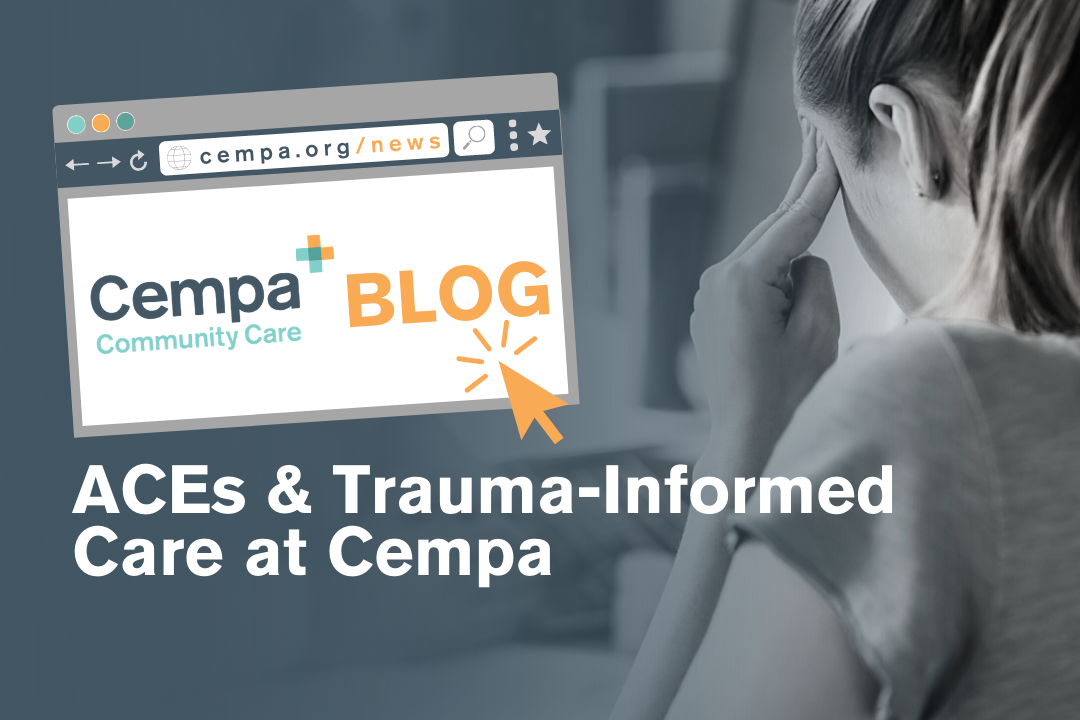During National Mental Health Awareness Month, Cempa Community Care shares our organization’s commitment to improving services for clients with trauma-informed care.
There’s one factor that can significantly impact negative health outcomes, and it may not be what you’d first guess, such an unbalanced diet or sedentary lifestyle. It’s something far more common: adverse childhood events, or ACEs.
According to a landmark study by the Centers for Disease Control and Prevention and Kaiser Permanente, ACEs have a tremendous impact on future violence, victimization and perpetration, and lifelong health and opportunity. ACEs are potentially traumatic events that occur in childhood, including experiencing violence, abuse, or neglect; witnessing violence in the home or community, or having a family member attempt or die by suicide, according to the CDC.
ACEs are linked to chronic health problems, and they’re common — more than 60% of adults surveyed experienced at least one type of ACE, and 1 in 6 adults experienced four or more types of ACEs. Furthermore, at least five of the top 10 causes of death are associated with ACEs, according to the CDC.
Sensitized Care for Every Patient
By understanding ACEs and a patient’s past trauma, healthcare providers can adapt services, policies, and programs to recognize and respect an individual’s particular needs.
Kim Sargent, LCSW, therapist at Cempa, brings decades of experience working in healthcare settings entrenched in the trauma-informed care movement. Sargent is leading training opportunities for all team members at Cempa to incorporate the best practices of trauma-informed care.
According to the Substance Abuse and Mental Health Services Administration, a trauma-informed organization or program:
- Realizes the widespread impact of trauma and understands the potential paths for recovery;
- Recognizes the signs and symptoms in clients, families, staff, and others involved with the system;
- Responds by fully integrating knowledge about trauma into policies, procedures, and practices; and
- Seeks to actively resist re-traumatization.
Both the ACE study and ongoing trauma-informed care enable providers to better understand a client’s behavior not as a pathology but a normal reaction to abnormal experiences. Similarly, trauma-informed care can strengthen the relationship between clients and care providers and create an environment of respect and welcoming.
“At Cempa, we recognize that the widespread prevalence of trauma creates particular circumstances or feelings in people, and we want to respond appropriately,” Sergeant says. “Layering trauma-informed care into our services is one more way we’re making sure that community members from all backgrounds can walk into our doors and be met with a sense of welcoming. We are working to ensure our systems won’t unintentionally cause more harm because of a person’s traumatic past.”
Want to learn more about the long-term effects of ACEs and trauma-informed care? Check out Dr. Nadine Burke Harris’ TEDMED for an insightful discussion around this movement and its impact.







